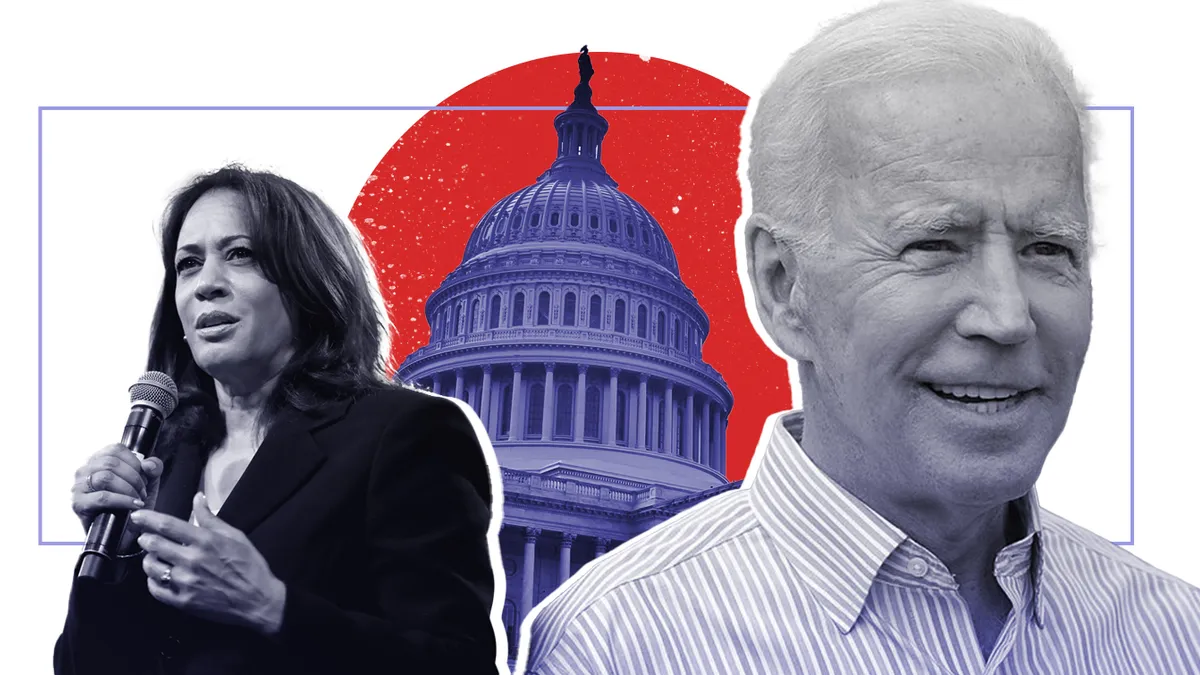Dive Brief:
- As national security increases ahead of President-elect Joe Biden's inauguration on Jan. 20, Washington, DC Mayor Muriel Bowser is issuing a number of measures to deter visitors and keep area residents safe.
- Bowser this week issued an order to extend the pause of activities in the city until 5 a.m. on Jan. 22. She is also urging DC residents to opt-in for the city's emergency alert system to stay informed on any updates from the city. Local businesses have been informed of street closures impacting the city's downtown, with warnings of National Special Security Event-sanctioned security perimeters, Metro station shutdowns, restricted parking and traffic delays for those traveling around the city.
- Some urban tech firms are also taking significant measures to prepare for the inauguration and deter dangerous activity. Airbnb announced Wednesday that it will block and cancel all reservations in DC during inauguration week, while Lime is warning riders of potential service disruptions. Lime has also asked TripActions to remove all Trump properties from Lime search results in response to last week's Capitol insurrection, a spokesperson told Smart Cities Dive.
Dive Insight:
The nation is on high alert following the violent unrest and insurrection that took place at the U.S. Capitol on Jan. 6. A number of governments outside of Washington, including the governors of Michigan and Washington State, are authorizing National Guard enforcement operations to defend their state capitals as experts warn of a widespread uprise in the coming days.
A number of city-facing companies and associations have publicly rejected the actions of the mob that breached the Capitol building. The American Council for an Energy Efficient Economy (ACEEE) called the event "deeply disturbing" and called for "leadership that values this democracy," while the National Multifamily Housing Council (NMHC) condemned the "abhorrent assault" in an emailed statement.
Micromobility companies stayed fairly tight-lipped about the event, however, outside of Lime's actions. While Spin issued a statement on Twitter condemning the actions, other major micromobility players — including Uber, Lyft, Bird, LINK and Veo — left the issue publicly unaddressed. It remains to be seen if Lime's Inauguration Day precautions will be mimicked by its competitors.
While some of the precautions taken in DC can serve as a model for other cities hoping to secure government perimeters ahead of Wednesday's inauguration, truly safe cities require more cohesive planning and response, said Jack Williams of Hexagon Safety & Infrastructure.
"You've got a separate channel for the National Guard, you've got the DC police, you've got Capitol police ... Yes, there are point-to-point sort of channels of communication, but it's usually restricted in terms of what can be shared, it's usually not very good at the ad hoc," Williams said. "What cities really need is a visual way of collaborating and sharing information."
There are a number of technologies that can play a role in securing a city, including facial recognition, which is currently being used by the FBI to track down and charge those involved in the deadly unrest. The use of such systems come with privacy and profiling risks, however.
"It’s always a balancing act in smart city work or any data collection, trying to provide services between, what should we be collecting and how do we protect privacy, and so it’s a real balancing act," Ginger Armbruster, chief privacy officer for the City of Seattle, told Smart Cities Dive in a recent podcast interview.












